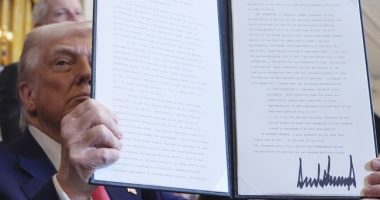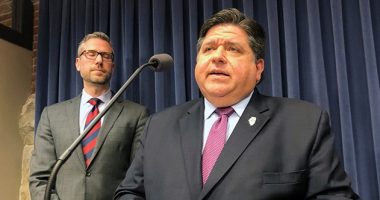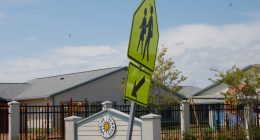Three of the most powerful premiers handed in their resignations, while another was turfed after 12 years of his party’s rule.
Here’s how the year in politics unfolded.

The last of the COVID premiers walk away
Such dominant figures in everyday life throughout the pandemic, Queensland’s Annastacia Palaszczuk this month announced her decision to retire, following the resignations of two of her interstate counterparts this year.
He’d led WA Labor to one of the most dominant election victories in Australian history in 2021, winning 51 of 56 seats and garnering just shy of 60 per cent of the vote, but said he didn’t have the energy for a tilt at another vote in two years.
That decision was made to avoid a near $5 billion cost blowout, but still left the Victorian government having to stump up $380 million.

Daniel Andrews’ life in politics: A timeline
Just as there were similarities in the criticism McGowan and Andrews faced for their hard borders and lockdowns during the pandemic, there were parallels in the resignations: barely any forewarning, and similar reasons for stepping down.
“I’m tired, extremely tired. In fact, I’m exhausted,” was McGowan’s, while Andrews said “every waking moment is about the work and that takes a toll”.
Then, after internal rumblings for months on her leadership, Palaszczuk chose a Sunday afternoon to drop the bombshell that she’d be walking away at the end of the following week.
“It’s been the greatest time of my life and our best days are well and truly ahead of us,” she said while holding back tears.
As the backroom dealmakers got to work, three challengers emerged: Palaszczuk’s deputy Steven Miles, Treasurer Cameron Dick and Health Minister Shannon Fentiman.
It soon became clear it was to be Miles or the rising Fentiman but by Tuesday, only one was left standing.
Miles, with Dick as his running mate, secured the numbers needed from the Labor caucus to take the top job.
He faces a tough task ahead of next October’s state election, with polling suggesting Opposition Leader David Crisafulli could be in a position to lead the LNP from the wilderness and back into government for the first time since 2015.

NSW Labor ends 12 years in electoral wilderness
After 12 years in power in Australia’s most populous state, the Coalition finally lost control of NSW at the state election in March.
Perhaps the most notable aspect of the campaign was how well-natured it was.
“A genuine battle of ideas. And that’s when politics is at its best,” he added before encouraging the state to throw its full support behind new premier Chris Minns.
The Labor leader had campaigned on a platform of new policies – including pay rises for essential workers like nurses, anti-privatisation and integrity.
Read Related Also: Whatever Happened To Dancing With The Stars Pro Mark Ballas?
It wasn’t all smooth sailing after electoral victory though, with the promise of pay raises leading to industrial action, while the party has faced integrity issues of its own.
Cabinet member Tim Crakanthorp was told to resign and referred to ICAC by Minns less than six months into the term, while Transport Minister Jo Haylen has weathered several staffing scandals.

Australia says No to the Voice
The bid to alter the Constitution proposed a twofold change: recognising Aboriginal and Torres Strait Islander peoples as the first Australians and enshrining a First Nations advisory body known as the Voice to parliament.
The government and other supporters argued recognition was the right thing to do, and that the Voice was necessary to address the entrenched disadvantages facing the Indigenous population.
The opposition and No advocates, led by Nationals Senator Jacinta Price and former Liberal MP Warren Mundine, argued it was divisive, unnecessary and lacking in detail, while Lydia Thorpe’s progressive No campaign argued it didn’t go far enough and that a treaty should be prioritised.
History said the lack of bipartisan backing was a death knell for the referendum, and so it proved: 60 per cent of the population and all of the states voted No.

Unlike the NSW election, this was a divisive campaign.
Indigenous Australians Minister Linda Burney said she had faced gruelling “racism and bullying” in parliament, Mundine accused Anthony Albanese of “attacking” Voice opponents, but much of the strain was experienced by Aboriginal and Torres Strait Islander people.
“We are already seeing first-hand the negative impacts of the debate in our communities, in terms of increased psychological distress, increased need for support and increased use of mental health services,” the Black Dog Institute’s Dr Clinton Schultz, a Gamilaroi/Gomeroi man, said more than a month before polling day.
“This moment of disagreement… will not divide us. We are not Yes voters or No voters. We are all Australians,” he said.
“And it is as Australians, together, that we must take our country beyond this debate without forgetting why we had it in the first place.
“Because too often in the life of our nation and in the political conversation, the disadvantage confronting Aboriginal and Torres Strait Islander people has been relegated to the margins.”

While the failure of the referendum to pass wasn’t necessarily a repudiation of the government as a whole – no government, however popular, has managed to alter the Constitution without bipartisan support – there’s no doubt the period of early-term support for Albanese and his party has ended.
The government’s handling of the decision saw the opposition call for the resignations of Home Affairs Minister Clare O’Neil and Immigration Minister Andrew Giles.
The crisis deepened when at least four of the detainees were charged by police for alleged offences committed after their release.
Elsewhere, the cost of living crisis and high inflation might be made worse by international factors like volatile oil prices, but it’s giving Labor a domestic headache.

The government has seen its support falter from around 55 per cent early and midway through the year to around an even 50-50 in the two-party preferred stakes.
Halfway through its term, Labor has delivered on a number of election promises: the National Anti-Corruption Commission, Housing Australia Future Fund and new emissions targets have all been legislated, and the Voice referendum, successful or not, was another pre-election commitment.
But with inflation proving particularly sticky and the roughly 65 per cent of households who rent or have a mortgage struggling with living costs, the 2024 federal budget looms as a key moment before the run to the next election a year later.







